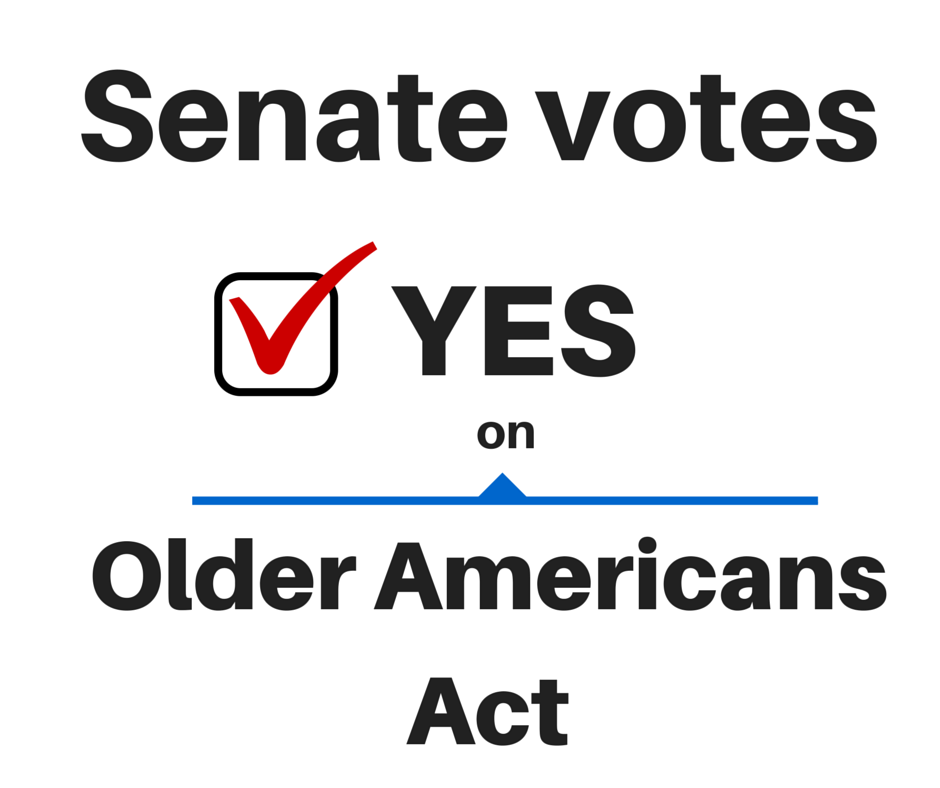AARP Hearing Center

AARP applauds the bipartisan action on S. 192, the reauthorization of the Older Americans Act (OAA), introduced by Senator Lamar Alexander (R-TN) with Senators Richard Burr (R-NC), Patty Murray (D-WA), and Bernie Sanders (I-VT). The Senate passed the bill the same week that we celebrated the 50 th Anniversary of the OAA.
“AARP is thrilled with the passage of this bipartisan bill reauthorizing the Older Americans Act in the Senate and we urge the House of Representatives to swiftly do the same,” said AARP CEO Jo Ann Jenkins. “This bill is crucial to millions of vulnerable older Americans, providing vital programs and services as well as respite to family caregivers. We hope the bipartisan, fiscally sound compromise reached in the Senate can lead to passage in the House before members of Congress go home in August.”
This carefully crafted legislation reflects over three years of bipartisan work reflected in a balanced, pragmatic approach to helping older Americans live longer with independence and dignity in their homes and communities.
The OAA reauthorization addresses AARP’s core concern that any proposed legislation include protection of an essential array of programs and services that assist, protect, nourish and sustain the nation’s older Americans, help them maximize their choices, and promote dignity and independence in a fiscally responsible way. The OAA helps save precious federal and state tax dollars by keeping older Americans out of nursing homes and preventing unnecessary hospital readmissions.
Since it was enacted into law in 1965, millions of our most vulnerable older Americans have relied on the services provided by the OAA for their health and economic security. These services help older Americans live independently by:
- Supporting nutrition programs, including Meals-on-Wheels;
- Providing home and community-based services, including preventive health services and transportation assistance;
- Assisting family caregivers with information and referral, counseling and respite care;
- Preventing and detecting elder abuse; and
- Providing part-time community service employment and training, including the Senior Community Employment Program (SCSEP), which has helped more than 1 million older Americans enter the workforce.































































